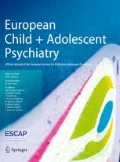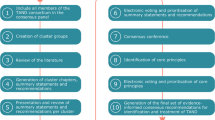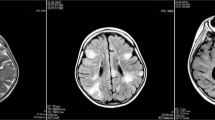Abstract
Tuberous Sclerosis (TSC) is a genetic disorder characterised by abnormal growths in a wide range of organs. In the brain, abnormalities of differentiation, proliferation and migration can produce a range of neuropsychiatric features such as mental retardation, autism and ADHD. Although these manifestations are not diagnostic of the disorder, cognitive and behavioural features are often of greatest concern to families yet limited clinical assessment and interventions are currently offered. A consensus panel at a TSC Brain/Behaviour workshop recommended that the cognitive and behavioural profiles of individuals with TSC should be assessed at regular intervals in a planned fashion in accordance with the difficulties associated with the disorder. Evaluations should include the use of standardised neuropsychological and behavioural tools as appropriate to the age and developmental level of the individual assessed. These cognitive and behavioural profiles should be incorporated in the overall formulation of the needs of the person with TSC to plan educational, social and clinical management strategies. Assessments should be documented so that individual longitudinal progress can be monitored. The paper outlines the problems associated with TSC, the purpose of recommended assessments, developmentally appropriate stages for assessment, and identifies specific areas that should be targeted for assessment.
Similar content being viewed by others
References
American Psychiatric Association (1994) Diagnostic and Statistical Manual of Mental Disorders,Fourth Edition (DSM-IV). American Psychiatric Association, Washington DC
Bolton PF, Park RJ, Higgins NP, Griffiths PD, Pickles A (2002) Neuro-epileptic determinants of autism spectrum disorders in tuberous sclerosis complex. Brain 125:1247–1255
Bolton PF (2003) Intellectual and Cognitive Impairments. In: Curatolo P (ed) Tuberous Sclerosis Complex: From Basic Science to Clinical Phenotypes. International Review of Child neurology Series, MacKeith Press in conjunction with Cambridge University Press, pp 77–90
de Vries PJ, Bolton PF (1999) Neuropsychological attention deficits in children with tuberous sclerosis. Mol Psychiatry 4:S51
de Vries PJ (2001) The Psychopathologies of Attention in Tuberous Sclerosis. PhD thesis University of Cambridge
de Vries PJ, Stott CM, Bolton PF (2001) Specific Cognitive Deficits in Adults with Tuberous Sclerosis. J Child Neurol 16(9):666–667
de Vries PJ, Bolton PF (2002) Tuberous sclerosis. In: Howlin P, Udwin O (eds) Outcomes in neurodevelopmental and genetic disorders. Cambridge University Press, Cambridge, pp 272–298
Ferguson AF, McKinlay IA, Hunt A (2002) Care of adolescents with severe learning disability from tuberous sclerosis. Dev Med Child Neurol 44:256–262
Gillberg IC, Gillberg C, Ahlsen G (1994) Autistic behaviour and attention deficits in tuberous sclerosis: a population based study. Dev Med Child Neurol 36:50–56
Gomez MR, Sampson JR, Whittemore VH (1999) Tuberous Sclerosis Complex. 3rd edn. Oxford University Press, New York and Oxford
Gosling V, Whitehead LC (2001) Young People with Tuberous Sclerosis (TS): Exploring Young People and Their Families Experiences of Living with TS. Research Report 81/01, Health and Community Care Research Unit, University of Liverpool
Harrison J, O’Callaghan FJ, Hancock E, Osborne JP, Bolton PF (1999) Cognitive deficits in normally intelligent patients with tuberous sclerosis. Am J Med Genet (Neuropsychiatric Genetics) 88 (6):642–646
Harrison J, Bolton PF (1997) Annotation: Tuberous Sclerosis. J Child Psychol Psychiatry 38(6):603–614
Harvey KV, Mahr G, Balon R (1995) Psychiatric manifestations of tuberous sclerosis. Psychosomatics 36:314–315
Heckert EE, Wald A, Romero O (1972) Tuberous sclerosis and schizophrenia. Diseases of the Nervous System 33:439–445
Holschneider DP, Szuba MP (1992) Capgras syndrome and psychosis in a patient with tuberous sclerosis. J Neuropsychiatry Clin Neurosci 4:352–353
Humphrey A, Higgins NP, Yates JRW, Bolton PF (2004) Monozygotic twins with tuberons sclerosis discordant for the severity of developmental deficits. Neurology 62(5):795–795
Humphrey A, Williams J, Pinto E, Bolton PF (2004) A prospective longitudinal study of early cognitive development in tuberous sclerosis—a clinic based study. Eur Child Adolesc Psychiatry 13(3):159–165
Hunt A (1983) Tuberous sclerosis: a survey of 97 cases. III: family aspects. Dev Med Child Neurol 25:353–357
Hunt A, Dennis J (1987) Psychiatric disorder among children with tuberous sclerosis. Dev Med Child Neurol 29:190–198
Hunt A (1993) Development, behaviour and seizures in 300 cases of tuberous sclerosis. J Intellect Disabil Res 37:41–51
Hunt A, Shepherd C (1993) A prevalence study of autism in tuberous sclerosis. J Autism Dev Disord 23:323–339
Hunt A, Stores G (1994) Sleep disorder and epilepsy in children with tuberous sclerosis: a questionnaire-based study. Dev Med Child Neurol 36:108–115
Hunt A (1998) A comparison of the Abilities, Health and Behaviour of 23 people with Tuberous Sclerosis at age 5 and as Adults. J Appl Res Intellect Disabil 11(3):227–238
Hunt A (1999) Psychiatric and Psychological Aspects. In: Gomez MR, Sampson JR, Whittemore VH (eds) Tuberous Sclerosis Complex. 3rd edn. Oxford University Press, New York and Oxford, pp 47–62
Jambaque I, Chiron C, Dumas D, Mumford J, Dulac O (2000) Mental and behavioural outcome of infantile epilepsy treated with vigabatrin in tuberous sclerosis patients. Epilepsy Research 38:151–160
Joinson C, O’Callaghan FJ, Osborne JP, Martyn C, Harris T, Bolton PF (2003) Learning disability and epilepsy in an epidemiological sample of individuals with tuberous sclerosis complex. Psychol Med 33(2):335–344
Khanna R, Borde M (1989) Mania in a five year old child with tuberous sclerosis. Br J Psychiatry 155:117–119
Landgren M, Kjellman B, Gillberg C (2003) “A school for all kinds of minds.” The impact of neuropsychiatric disorders, gender and ethnicity on schoolrelated tasks administered to 9–10 year old children. Eur Child Adolesc Psychiatry 12(4):162–171
Lewis JC, Thomas HV, Murphy KC, Sampson JR (2004) Genotype and psychological phenotype in tuberous sclerosis. J Med Genet 41:203–207
Prather P, de Vries PJ (2004) Cognition and behaviour in Tuberous Sclerosis (TSC). J Child Neurol 19:666–674
Ridler K, Bullmore ET, de Vries PJ, Suckling J, Barker GJ, Meara SJ, Williams SC, Bolton PF (2001) Widespread anatomical abnormalities of grey and white matter structure in tuberous sclerosis. Psychol Med 31(8):1437–1446
Ridler K, Suckling J, Bolton PF, Bullmore ET (2002) Anatomical and psychological studies of memory dysfunction in TSC. Poster presentation at conference, New Perspectives in Tuberous Sclerosis Complex, Chantilly, USA
Roach ES, DiMario FJ, Kandt RS, Northrup H (1999) Tuberous Sclerosis Consensus Conference: Recommendations for Diagnostic Evaluation. J Child Neurol 14:401–407
Roach ES, Gomez MR, Northrup H (1998) Tuberous Sclerosis Complex Consensus Conference: Revised Clinical Diagnostic Criteria. J Child Neurol 13:624–628
Sampson JR (2003) TSC1 and TSC2: genes that are mutated in the human genetic disorder tuberous sclerosis. Biochem Soc Trans 31(3):592–595
Smalley SL, Burger F, Smith M (1994) Phenotypic variation of tuberous sclerosis in a single extended kindred. J Med Gen 31:761–765
Smalley SL, McCracken J, Tanguay P (1995) Autism, affective disorders and social phobia. Am J Med Gen 60:19–26
Whitehead LC, Gosling V (2003) Parent’s perceptions of interactions with health professionals in the pathway to gaining a diagnosis of tuberous sclerosis (TS) and beyond. Res Dev Disabil 24(2):109–119
Whittemore VH (1999) The diagnosis of Tuberous Sclerosis Complex: The Impact on the Individual and Family. In: Gomez MR, Sampson JR, Whittemore VH (eds) Tuberous Sclerosis Complex. 3rd edn. Oxford University Press, New York and Oxford, pp 324–330
World Health Organisation (1992) The ICD-10 Classification of Mental and Behavioural Disorders: Clinical Descriptions and Diagnostic Guidelines. WHO, Geneva
Author information
Authors and Affiliations
Corresponding author
Additional information
and the TSC Behaviour Consensus Panel
Rights and permissions
About this article
Cite this article
de Vries, P., Humphrey, A., McCartney, D. et al. Consensus clinical guidelines for the assessment of cognitive and behavioural problems in Tuberous Sclerosis. Europ.Child & Adolescent Psych 14, 183–190 (2005). https://doi.org/10.1007/s00787-005-0443-1
Accepted:
Issue Date:
DOI: https://doi.org/10.1007/s00787-005-0443-1




